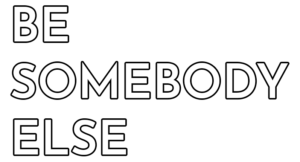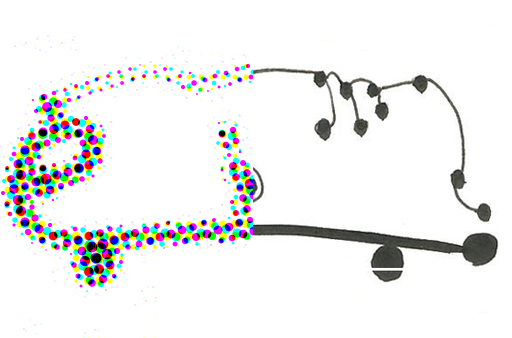by Tom Tomaszewski | Mar 20, 2024 | Be Somebody Else, FRUSTRATION

FRUSTRATION / CARE
I’ve written about being at the centre of your own solar system somewhere else, but a talk I listened to at the weekend made me think about it again.
Think about the relationships in your life and how intensely you’d cling on to whatever they contain. That clinging involves the stuff of Panksepp’s emotional instincts. Life, it seems, depends on how we respond affectively, our emotions guiding our thoughts towards ‘what supports out survival and detracts from our survival’.
Struggles with intensity
That’s what this blog is about. I could have called it ‘struggles with intensity’, those struggles meaning whether or not you get stuck. As an EMDR therapist I spend every working day experiencing the extraordinarily different ways in which people react to intense or diminished feeling. Sometimes they might call this an emotion, the subjective way of categorising feeling that we assume everybody is broadly aligned to. Other times they might only be able to draw attention to some kind of sensation in their body that feels out of place. EMDR, according to Francine Shapiro’s AIP (advanced information processing) model, is an excellent way of getting unstuck.
Going back to those relationships in your life, ask yourself: what do you do to cling on to them? Pathological clinging, as the Buddha pointed out, is not a blast.
Your own solar system
Draw yourself a map of your own ‘solar system’ like the one below and see what it looks like when you rate your relationships in terms of uncomfortable intensity. It’ll give you a good idea of how stuck you are and maybe where the main sticking points are. You’ll be looking at symptoms, of course, but go with that. Look into those relationships and see what causes conflicts.

In this example there are a number of what feel like stable relationships. As life goes on, day to day, there may be good and bad moments but the relationship feels consistent (it has a predictable orbit). Whatever’s included feels at a similar level of intensity. The volatile relationships, however, veer between being very close up and very distant. Think about what that looks like as an orbit and imagine the havoc that would cause in any solar system.
Havoc in your life
A scenario like this will be causing havoc in your life. What kinds of compromise might lead to work feeling suffocating or barely there? Is this person unable to press for a promotion because they cannot assert themselves? Maybe they perform their duties extremely well in the hope they might ‘care’ their way there. A conflict like this, in which CARE supersedes RAGE (well, the lowest levels of it!) is very common. It might be the result of having an angry or a passive parent. Is this you? Are you known to CARE really hard? Do you often feel unrewarded, abandoned, and frustrated?
Study your own map and look for what doesn’t feel real. Or are there relationships where important things don’t get said? That’s unreal. Life will be being lived without attention to the whole story. Sometimes this is essential but often it’s not. It’s a big part of why someone like you gets stuck.
Homeostasis
At the bottom right corner of the illustration the are the words ‘HOMEOSTASIS’ and ‘ENTROPY’. Don’t worry too much for now about these: they refer to a clinical way of approaching life. Imagine, though, that your emotions are there to help you achieve a state of homeostasis where you aren’t running down your battery all of the time. Living an unreal life is one of the most depleting things you can do. Conflicts never get dealt with because they are not acknowledged.
Look to be as real as possible and you will resource yourself. You will be far less likely to get stuck.
Satellite of Love
What’s all this got to do with Satellites of Love? All love is narcissistic. Satellite of Love is a beautiful, soulful Lou Reed song that says something about the strangeness of this and everything I’ve tried to include here. It’s a song that spills over into things that feel impossible to get hold of or understand. David Bowie produced it with Mick Ronson (who also plays guitar on the song) but Mick Ronson never received any credit.
All of this: all the stuff of relationships and a reason for me to (narcissistically) include this (thanks to my babysitter, a very good relationship, it’s among my earliest memories). Better have this, too.
When it’s not part of a living nightmare narcissism can be the gift that keeps giving.
by Tom Tomaszewski | Mar 6, 2024 | ALIENATION, DESOLATION, FRUSTRATION, HELPLESSNESS, HESITATION, INEXPERIENCE, MONOTONY
Insight and information can help you avoid repeating past ways of feeling, thinking and acting. You need to protect your capacity to think with that information, rather than to remember it. Your capacity to think freely is what will keep you safe and doing life the way you want.
Here are three things that you can do three times each day which will help prevent your body from becoming overloaded by negative intensity… worries, resentments and so on … the kinds of thing that will leave you stuck. causes a loss, sometimes a radical loss, of momentum. These three things promote positive intensity: the joy of being able to feel relaxed and thoughtful, the pleasure of being in harmony with your life, and the ability to start and stop things when you need to.
Box Breathing
Experiment with different amounts of time for the in-breath, pause and out-breath to see what suits you most for a situation. Box breathing is something you can always turn to discreetly
Don’t get taken for a ride
Stop being taken for a ride. Go and see films specifically to explore whether staying watching them or leaving is the best option. After you leave you need to be able to tell someone why you left. How long can you stay before you’re confident the film is not going to deliver what you need? You can experiment like this with any kind of experience, really. Always hold a place for your right to leave, work out how to do this in ways that feel right for you and others (ie storming out might not be the best option – quietly departing might be instead. Do you really want to make a point? What will the effect of that be on?
Instant sound bath
Buy a tuning fork or two and sound these close to your ear for an instant experience of being present in the world, connected to something outside of you that leaves you feel grounded in yourself.
by Tom Tomaszewski | Feb 21, 2024 | Be Somebody Else, FRUSTRATION

FRUSTRATION / CARE
Life becomes a process of gathering momentum out of difficult events (broadly speaking, and unscientifically, entropic ones), the ones that elicit disagreement, distraction, aggravation, loss, unhappiness and disorder as much as those things that seem to maintain the status quo (loosely, homeostatic ones). The more momentum you gather the less likely you are to become stuck.
by Tom Tomaszewski | Jan 24, 2024 | FRUSTRATION

HELPLESSNESS / RAGE
Remembering a certain song reminded me how when you look at back at something, it can always feel different, always make you think of something else. If it doesn’t then something is stuck. Unchanging recollection is a sign that something is keeping your mind from moving on. Maybe you like it being stuck – but stuck it is. Perhaps you need it to be stuck, a perfect memory of somebody you love or something that happened. Good. Or bad. It’s up to you. An unstuck mind remains open. A stuck one can leave you helpless to the past, angry that you feel the same old stuff.
by Tom Tomaszewski | Jan 10, 2024 | FRUSTRATION

FRUSTRATION / CARE
Without realising it we do things on behalf of other people as much as we do for ourselves. People operate collectively whether or not they like it, even when they believe they are acting on their own. Much of what I write about on these pages is about how our ways of living have been shaped by others organising life around us in our earliest years.
What’s hard to think about might be that those ‘others’ include people who were not physically present. They may have been on the other side of the world and unknown to you; they could have been long dead. This is a strange thought to have unless you already think this way.
No such thing as a single relationship
Let’s begin with a bold thought. There is no such thing as a single relationship, although sometimes we talk about one for the sake of simplicity. Each thing we call a relationship carries the effects of countless others, some so fleeting but so potent; their force like the glancing blow of a meteor now knowable only as we might trace some rock traveling through the outer limits of our universe.
Relationships involve the lingering presence of people who are long dead or events that occurred deep in the past. What we think about as being between two people, you and me for instance, is actually always a bigger adventure, a group activity.
Anger as a group activity
Let’s see what anger, which has a lot to do with CARE might look like as a group activity. My thoughts owe something to Foulkes’ rather hazy ideas about location and a lot to Nicolas Abraham’s and Maria Torok’s extraordinary ones about the dynamism of intersubjective functioning.
Imagine that people tend to get angry with you. Maybe you had an angry parent. You tend not to get angry easily (you feel it, you sometimes do it when that seems absolutely necessary, but something doesn’t feel free about your relationship with anger). You do some things with great force. Maybe you kick a ball, dance, sing or throw things with a kind of power that other people come to recognise. Maybe you even make a career out of it. At the same time you find people getting angry with you in ways that aren’t clear. You rarely get into a fight. Perhaps you experience others being envious of you. Things are more blurred than a straightforward fight.
Blurred anger
This blurred experience of others’ anger comes from you dealing with your parent’s anger when you were a child, but also from all kinds of other places. It may not be blurred: perhaps it has some other distinct form. See if you can find a way of describing it. As your defence, a way of adapting to something that threatened you, it operated along these lines. If someone is going to get angry with me (unavoidable) I will experience, when they start to do so, a kind of a tension that builds up to some kind of a release. That way I let go of the tension and I feel okay.
Being a lightning conductor
This is like being a lightning conductor. A catalyst for some immense force, taking it out of one place (your parent) and into the ground. Unfortunately ou don’t escape unscathed. Over time all of this catalytic work will affect your body. Entropy is inescapable and more profound when the same thing happens again and again.
Overall, though, you will seem okay with anger. By not responding angrily to someone who is angry with you you run less risk of immediate injury or insult.
How people feel safe
Perhaps you can see how your way of coping with anger can be a cornerstone of a group’s way of coping with anger. You are very likely to feel safe to other people, unless they are living some kind of a lie. You can become a go-to when people reliably want to vent their frustration. They know you will in some way stand up to them, even if they can’t quite see how, and they can see you are doing okay. The way you receive and release anger can keep a group stable.
Frustration
Groups need people like you. But you really need to make sure you care for yourself. What toll is all of this taking on you? Being a lightning conductor has benefits but predictable ways of dealing with difficulties inevitably become outdated. Nobody can live life as if they are trying to deal with a long-gone meteor.
You will feel so frustrated if you try to care about things you can do nothing about. Many of the things that might affect your response to situations are no longer happening. Their invisibility might leave you feeling what you care about is only straight in front of you, whereas you could be angry for all the cares in the world. Your world, that is, and whatever that may be is impossible to ever entrirely know.
Have a go though. Try to understand indirection. Always, we need to update.
by Tom Tomaszewski | Dec 13, 2023 | DESOLATION, FRUSTRATION

DESOLATION / LUST
I’m not sure what I mean. I was thinking, if only Pete Shelley and Beyoncé had done something like Shane MacGowan and Kirsty McColl. I love all that stuff. I suppose I’m getting into the selfishness of love. In the first place it’s totally selfish. When I feel and say, ‘I love you’, who’s feeling the love? Me. And then, sometimes, perhaps, the other person feels some love. Saying ‘I love you’ might confirm something, spark something, fire something up.
If you aren’t aware of all this stuff, especially the bit about love being selfish, read on. This piece is about conditional loving (the kind of thing I was doing thinking I’d have loved Pete Shelley and Beyoncé to have done … I don’t imagine they would have loved it, really.).
It’s like this: if I say ‘I love you’ so that I hear the same thing coming back to me, so that I feel loved, maybe I should have kept my mouth shut. If I say and feel ‘I love you’, I hope I pick my moment so that it may be the right moment for you. Cuff it. What love sounds like, actually, isn’t up to me. It’s a multi-person thing.
The other thing: if I do or say something expecting some gratitude I should possibly never have done it. Not always, but usually, doing something and expecting someone to be pleased won’t end well.
Hoping is another matter.
Someone said to me the best thing ever about love: faith, hope, trust, they said. These are the ways love can happen between two people. Loving involves being open to another person and if you feel desolation in your life, or frustration, I suspect you have spent many hours on your own with your love. That’s devastating. What can you do?
Anticipate the selfishness in love and mediate it. That’s all you can do, really. Look for it in your loving and in what you hear from somebody else, and don’t necessarily recoil when you find it. It will be there: it’s a matter of what is also there. The love +.
Love + might dispossess. It may do something that works against the ‘wanting you to be mine’ thing, like what happens in that stupid children’s game, Buckaroo , where something trips and all the baggage flies off. The possessiveness of love can pull or push other people, the ones you say you love, into carrying you and all of the stuff you find too much.
Filter love as you send it and as you receive it. Imagine love like a postcard rather than a letter. ‘Wishing you were here’ rather something in a sealed envelope. It’s always the sealing off that’s the problem. Sealed off people can’t love or be loved. Sealed off love can’t be felt. Sealed off thoughts can’t be loving.
Anybody can see what’s on a postcard, and of course there are times when you can’t show what you feel (or face the consequences) and only a letter or even something more secret will do. But imagine, just imagine, somebody fair-minded, someone who you’ve never seen show contempt, and trust what you feel they might think of your message.






